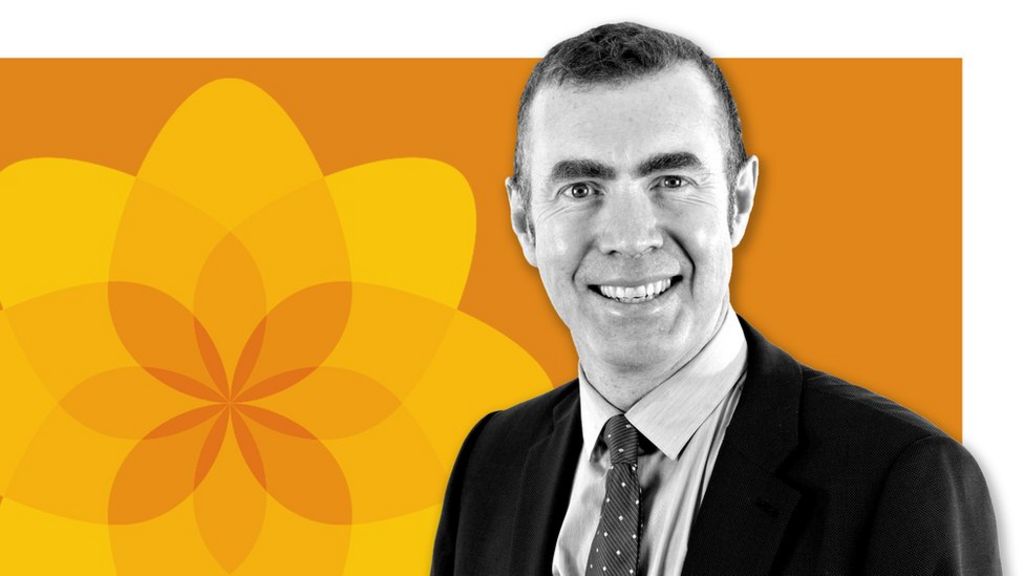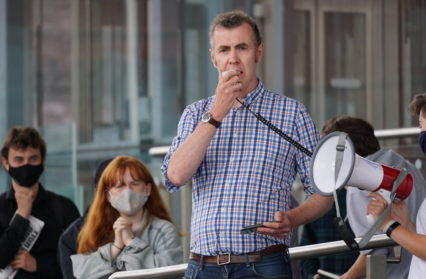Leader of Plaid Cymru, Adam Price, talks about his personal experience recognising the importance of knowing where we’ve come from and calls on Welsh Government to ensure that Welsh History, including LGBTQ+ history, becomes a compulsory part of the new curriculum.
It’s a Sin was premiered to 1.9 million viewers last week, and thousands more have since been utterly captivated by Russell T Davies’ latest series.
The story charts a group of five friends as they navigate a dark period in our recent history – the epidemic with capital letters that was the AIDS crisis. Viewers were particularly won over by Colin, a shy young man from the valleys played by the spectacularly talented Callum Scott Howells, who feels able to live a very different life in London than he could have enjoyed back home. With Welsh actors Andria Doherty and Jill Nalder also starring (and yes, even Olly Alexander went to Monmouth Comp), this series has earned its place already in the Welsh TV and film gay pantheon which is thankfully less niche than it used to be.
With echoes of the current pandemic – the confusion caused by the arrival of a new virus, to different versions of the truth that circulated in the early days – the story of the AIDS crisis bore one striking difference: the coronavirus pandemic has been on the news most days since its arrival. The AIDS crisis was not. And its victims were treated not with sympathy but revulsion.
Previously underreported, overlooked, deliberately covered up, for those that managed to survive it, It’s a Sin has finally given the hard reality of being gay in the 1980s the mainstream coverage it deserved. For some it’s been an eye-opener as to how things really were, with many people expressing shock and regret that they never knew how bad it was.
For me, growing up in the 80s, Channel Four, that radical cuckoo in the nest (or was it canary in the coalmine) of Thatcher’s Britain, was a crucible for my whole gay identity. My sex education teacher at school was telling me “I hope you don’t turn out like that” (Sorry, Sir….) and, by the time I got to university, gay literature was literally banned thanks to Section 28. Television was the flickering small screen in the corner that was the aperture through which a whole new way of thinking, living and loving beckoned. For me, Derek Jarman’s Sebastiane, with the volume turned down in my bedroom on my black and white telly, as part of Channel Four’s In the Pink series, was something of a breakthrough moment as I realised whatever I was feeling it was as old as the Roman Empire Gays, who even spoke Latin apparently. Though on S4C at the time at the time we only had Ricky Hoyw.
Making the invisible visible, the forgotten re-remembered is what great film-makers, actors and story-tellers do. Staying in the ‘80s how many people only learnt about ‘Lesbians and Gays Support the Miners’ through the film Pride? In case you’ve missed it – where’ve you been! – this was when a group of lesbian and gay activists raised money for families affected by the miners’ strike while helping them navigate the abuse of police power and media bias. All in a day’s solidarity work.
I did know about LGSM because, as Max Boyce would put it, I was there. Not in Onllwyn but through a side-visit they made to Pantyffynnon Social Club, for which I will be forever in their debt. There was no dancing that night in Ammanford, but internally I was doing mental somersaults as I saw a part of who I am loved by the people that shaped me for the very first time. Though it’s not until watching the film years later that I realised Gethin Roberts, on whose couch I stayed a few times on a Colin-like pilgrimage to London’s gay village, was that Gethin. With a Mam from Môn and a dad from Bethesda his own story was part of another sub-plot of the strike – the discovery of solidarity within and between the different parts of Wales.
Pride and It’s a Sin show the power of story, and the story of power. Because the stories that we tell and the stories that are untold are the ultimate source of power itself. Seeing people that look and sound like you in them gives you the confidence that your life has meaning. Being written out of the script, however, is the ultimate form of exclusion. The closet writ large. Adam Price LGBTQ+ History

Learning about who came before you is a necessary first step in understanding who you can become. Your sense of self needs context and connection. And those connections are not just roots but branches that reach out as Pride’s parable amply demonstrated. History is not monolith but tapestry.
It’s a sin that the AIDS crisis and the decade of deep homophobia it unleashed has become erased, until now. The parallels with what the trans community are experiencing today are starkly apparent. In failing to remember, we have condemned others to relive.
For me, growing up, history was not my history – of the Welsh working class – but that of Kings and Queens. And they weren’t my kind of Queens, either. In a recent interview, Russell T Davies has talked about how LGBTQ+ history needs to be included in history lessons, rather than – as he phrases it – “put in the pink corner”.
If society is to change, Black and people of colour history has to be mandated. And if Wales is to change Welsh history has to be mandatory. Inexplicably – and uniquely for almost any other nation on earth – the Welsh Government disagrees. They genuinely deserve praise for ensuring every school must teach relationship and sexuality education in a much more inclusive way than I did in Biology in 1984. But history is the ultimate in relationship education. It’s about our relationship with each other.
We’re about to have a new curriculum in Wales – progressive, exciting and forward-looking in so many ways. But why are we in Wales so backward in coming forward in learning about ourselves in all our fabulous diversity.
It’s surely time to show some Pride.
Adam Price LGBTQ+ history
Adam Price is a Member of the Senedd, representing Carmarthen East and Dinefwr, and is Leader of Plaid Cymru.











